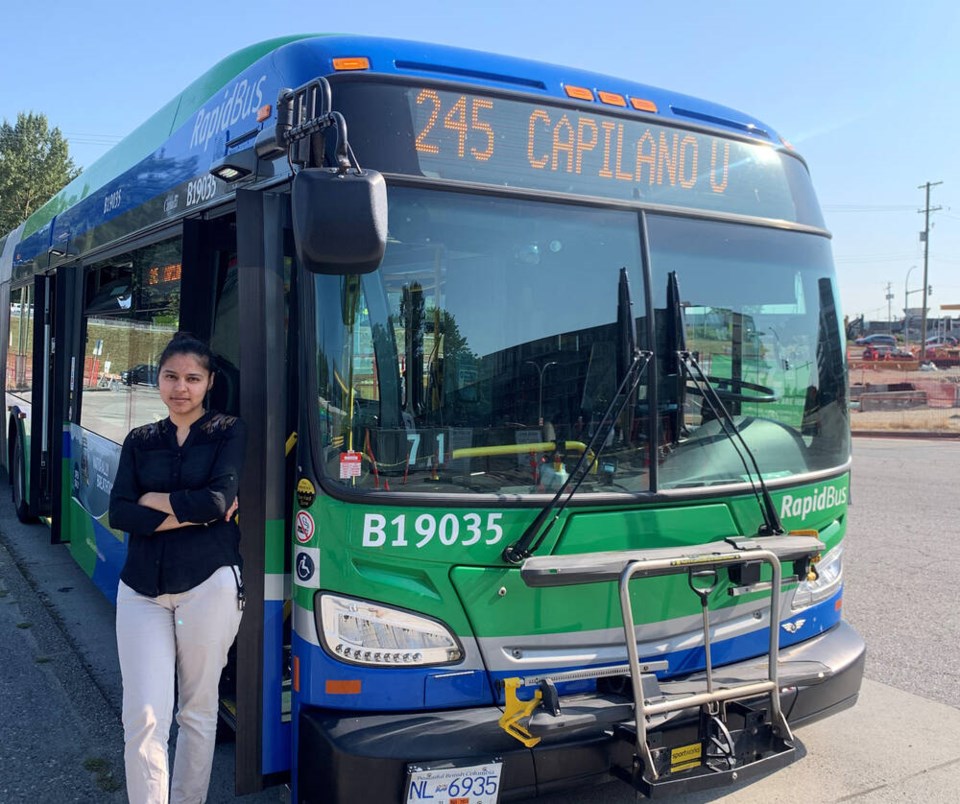As discussions about a bus rapid transit line for the North Shore ramp up, Capilano University students say they’re being passed by.
The Capilano Students’ Union issued a release Thursday, calling on the transit authority to include the university in any future rapid transit plans.
“Despite years of hard work advocating for the launch of the original R2 Marine Drive RapidBus, we were all shocked to find out that the route would not even reach campus. Students are forced to make an additional transfer at Phibbs Exchange, which just adds more time to their journey,” said Karandeep Singh Sanghera, CSU president.
Despite classes returning almost fully to campus, TransLink has still not restored bus service to pre-pandemic levels, the CSU says.
In the spring of 2020, the transit authority changed three routes that previously went straight to campus – the 239, 28 and 139 – and later replaced them with a shuttle that CapU-bound passengers could transfer to at Phibbs. That shuttle is always overcapacity at peak times, extending what is already a very long commute, the CSU says.
According to a survey carried out by the CSU, 65 per cent of students reach the campus each day on public transit. Half of them reported that they spend more than two hours per day on transit. Another quarter said they spend more than three hours per day.
That is time that could be spent studying, working or being with loved ones, said Manpreet, vice-president external for the CSU.
“We continue to ask for an immediate capacity increase on the shuttle service to campus and assert our rightful place as a designated stop on the R2 RapidBus route, as well as on any future rapid transit lines to the North Shore,” she said. “Capilano University students finally deserve to be treated fairly and be fully included in regional public transportation investments.”
On Thursday morning, the TransLink Mayors’ Council formally confirmed that a bus rapid transit line from Park Royal to Metrotown would be among three at the top of the priority list for transit expansion and asked the federal government to include funding for the line in the next budget. Current estimated costs for the bus rapid transit lines are estimated at $250-$300 million each.
Beyond that, the mayors are calling on the feds to put up almost $2 billion for expansion of the entire TransLink fleet and depot capacity, active transportation and road safety projects. Irrespective of the current capital plans, the mayors say the federal government needs to join with the province and region in creating a new transit funding model.
“Provincial and federal governments are calling on municipalities to accelerate the approval of new housing to address the affordability crisis, but we need additional transit infrastructure to serve residents moving into new housing developments,” said Brad West, mayor of Port Coquitlam and chair of the mayors’ council.
“Time is running out. For TransLink to reduce overcrowding as soon as possible, and enable the substantial service expansion we need in the coming years, we must have both federal and provincial funding commitments for this first phase of Access for Everyone, no later than mid-2024.”



